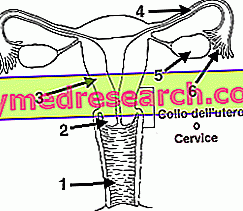DULCOLAX ® is a drug based on Bisacodyl
THERAPEUTIC GROUP: Laxatives - Stimulative laxative
IndicationsAction mechanismStudies and clinical effectiveness Usage and dosage instructionsWarnings Pregnancy and lactationInteractionsContraindicationsUndesirable effects
Indications DULCOLAX ® Bisacodile
DULCOLAX ® is indicated for the short-term treatment of episodes of occasional constipation.
Mechanism of action DULCOLAX ® Bisacodile
The bisacodyl contained in DULCOLAX ® is a derivative of triarylmethane, important for its laxative effects. Taken orally - in gastro-resistant tablets necessary to guarantee its integrity, also following the gastric passage and small intestine - or through suppositories, it reaches the colon intact, where it is hydrolysed by enzymes present on the enteric mucosa in desacetyl bisacodyl .
In order for desacetylbisacolide to act locally, without being absorbed by enterocytes and processed through enterohepatic circulation, it is very important that the drug arrives intact at the level of the mucous membrane of the colon.
The laxative action of DULCOLAX ® is mainly guaranteed by the irritating effect of this metabolite on the mucosa of the colon, with consequent accumulation of liquids and electrolytes and increase in peristalsis and intestinal transit. The laxative action is also guaranteed by a direct stimulating action on the sensory terminations of the colon.
The time required for the manifestation of the therapeutic effect varies, depending on the formulation, from about 6 - 12 hours for the solution in tablets to only 15-30 minutes for that in suppositories, which allows a rapid contact with the intestinal mucosa.
The small amount of drug absorbed, estimated between 3 and 17%, is generally eliminated both through urine and bile, in the form of glucoronide.
Studies carried out and clinical efficacy
BISACODYL IN THE ADJUSTMENT OF POTASSIEMIA IN PATIENTS WITH RENAL FAILURE
Hyperkalemia is a very frequent condition that occurs in the final stages of renal failure. The reduced excretion of potassium through the kidneys causes a blood increase of this mineral, potentially dangerous for the cardiovascular health of the patient. The bisacodyl, known for its laxative effects guaranteed precisely by the increased intestinal excretion of electrolytes, including potassium and water, has been used successfully in combating hyperkalaemia in patients with kidney disease.
2.BISACODILE AND POST-BIOPSY INFECTIONS
Trans-rectal guided prostate biopsy is a practice widely used for diagnostic purposes, often associated with the onset of post-operative infections and complications, despite antibiotic therapy. The use of bisacodyl, useful to promote defecation and intestinal "cleansing" before surgery, was useful in reducing the incidence of these infections.
3.BISACODILE AND IDIOPATHIC CONSTIPATION
The main use of bisacodyl is that related to the treatment of episodes of acute constipation, of unknown origin. This action is justified by the extremely important laxative effect demonstrated, able to double the daily frequency of evacuation, with an increase in faecal mass.
Method of use and dosage
DULCOLAX ® Bisacodyl 5 mg coated tablets : the suggested dose is two tablets per day. Given the laxative effects, evident around the sixth hour and beyond, it is advisable to take the tablets before going to bed, so as to be able to evacuate in the morning upon waking up.
To optimize the laxative action of bisacodyl we recommend a diet rich in liquids and to avoid drugs or foods that can reduce gastric acidity.
DULCOLAX ® 10 mg suppositories of Bisacodyl : generally a suppository is used, which guarantees the laxative effect in about 30 minutes.
In the case of children over 4 years of age, DULCOLAX ® should be administered in half doses, and under medical supervision.
The use of this medicine is indicated in the treatment of episodes of acute constipation, and its intake should never exceed seven consecutive days.
Warnings DULCOLAX ® Bisacodile
The intake of DULCOLAX ® should be limited to short periods, necessary to overcome episodes of acute constipation, while it does not present any preventive action. For this reason, the basis of any therapeutic protocol should be an appropriate dietary adjustment (see diet for constipation).
Prolonged use of stimulant laxatives may lead to profuse diarrhea, hypokalemia, dehydration, intestinal inflammation and, consequently, chronic constipation and intestinal atony.
DULCOLAX ® contains both lactose and sucrose, therefore - in the case of glucose-galactose intolerance or the enzyme deficiency of sucrases, isomaltalses and lactase - the use of this drug could be associated with gastro-intestinal disorders.
Patients suffering from hypertension and undergoing antihypertensive therapy, heart disease or diabetes mellitus should only take this medicine after consulting their doctor.
Although rare cases of dizziness have been described, generally following prolonged administration of the drug, and signs of vasovagal reactions, DULCOLAX ® does not seem to interfere with the normal ability to drive vehicles and use machinery.
PREGNANCY AND BREASTFEEDING
There are currently not enough studies able to clarify the potential toxic effects of bisacodyl on the health of the fetus (although experience shows no toxicity), nor much less pharmacokinetic studies to understand if the small amount absorbed can be in part secreted in breast milk.
In light of this evidence, the use of DULCOLAX ® during the period of pregnancy and lactation should only take place in cases of real need and under strict medical supervision.
Interactions
The intestinal loss of water and electrolytes, induced by DULCOLAX ® could be enhanced by the concomitant use of diuretics, cardioactive steroids and glycosides, inducing a possible hydro-saline imbalance with potential risks for the patient's health.
Laxatives, in general, are able to accelerate intestinal peristalsis and decrease transit time, thus changing the absorption profile of nutrients and active ingredients. In light of this evidence, it would be advisable to avoid the concomitant oral administration of other drugs.
Antacids are instead able to alter the normal therapeutic properties of bisacodyl contained in DULCOLAX ®
Contraindications DULCOLAX ® Bisacodile
DULCOLAX ® is contraindicated in all cases of acute inflammation of the gastro-intestinal tract, accompanied by nausea, vomiting or diarrhea, in patients with intestinal obstruction or stenosis, in dehydrated individuals and in case of hypersensitivity to the active ingredient or to one of its components .
Undesirable effects - Side effects
DULCOLAX ® appears to be well tolerated, despite the presence of some cases of colitis, abdominal cramps, diarrhea and vomiting, and allergic reactions to the drug characterized by edema and skin rash.
The side effects may become clinically relevant following the abuse of this drug, with secondary hyperaldosteronism, intestinal inflammation, kidney stones, hypokalemia, muscle weakness, dehydration and related cardiac symptoms.
The uncontrolled use of laxatives belonging to the category of stimulant laxatives, can determine a reduction in the effectiveness of the active ingredient, with consequent chronic constipation, and deterioration of intestinal function until the appearance of the atonic colon.
Note
DULCOLAX ® is an OTC drug, without a prescription, therefore it can be sold freely.



